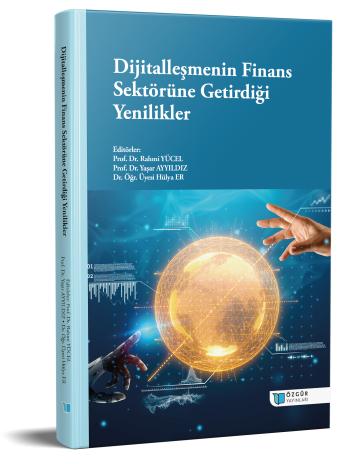
Blokzincir Teknolojisinin Vergilemede Kullanımı
Şu kitabın bölümü:
Yücel,
R.
&
Ayyıldız,
Y.
&
Er,
H.
(eds.)
2023.
Dijitalleşmenin Finans Sektörüne Getirdiği Yenilikler.
Özet
Günümüzde, dijital ekonominin hızlı gelişimi çevrimiçi platformların, kripto varlıkların ve dijital hizmetlerin artan kullanımıyla birlikte geleneksel vergi sistemlerinin sınırlarını zorlamaktadır. Blokzincir teknolojisi (BZT) uygulamaları, merkezi olmayan ve şeffaf yapıları ile bu karmaşıklıkların üstesinden gelme potansiyeline sahiptir. Çalışmada, giderek dijitalleşen ekonomilerin hızla gelişen dünyasında blokzincir teknolojisi uygulamalarının vergilemede mevcut zorluklara çözüm olabilme potansiyeli ele alınmıştır. Bu kapsamda, blokzincir teknolojisi uygulamalarının hızla dijitalleşen ekonomilerin vergilendirilmesinde kullanımının avantajları ve uygulama alanları ayrıntılı bir şekilde açıklanmıştır.
Blokzincir teknolojisinin, vergi beyanlarının ve ödemelerinin takibi ve otomatikleştirilmesi, beyan süreçlerinin güvenilirliğinin artırılması gibi muhtelif vergileme konularında nasıl bir çözüm sunabileceği vurgulanmıştır. Blokzincir teknolojisinin giderek dijitalleşen ekonomilerin vergilendirilmesindeki potansiyeli ve bu teknolojinin vergi otoriteleri, şirketler ve bireyler için nasıl faydalı olabileceği tartışılmıştır. Ayrıca, vergi kaçakçılığı ve vergi dolandırıcılığı gibi sorunlarla mücadelede blokzincir teknolojisinin nasıl etkili bir araç olabileceği de gösterilmeye çalışılmıştır. Dijital ekonominin hızla değişen yapısı, hükümetlerin ve düzenleyici kurumların bu teknolojiyi izlemesi ve uyumlu bir şekilde entegre etmesi için gereken esneklik ve hız açısından zorluklar da ortaya çıkarabilmektedir. Çalışmada, blokzincir teknolojisinin vergilendirme alanında kullanımına yönelik bazı zorluklara da değinilmiştir.
Çalışma sonucunda; blokzincir teknolojisinin genel olarak vergilendirme alanında da kullanılmaya başlanması gerektiği, ancak uygulamadaki birçok zorluk ve yetersizlikten dolayı bu teknolojinin bir süre daha gelişmesi ile önümüzdeki yıllarda vergilendirme alanındaki uygulamaların yaygınlaşacağı düşüncesinin hâkim olduğu tespit edilmiştir. Henüz gelişme aşamasında olduğu anlaşılan bu teknolojinin vergilendirme alanında yaygınlaşması için gerek ulusal gerekse küresel düzeyde birçok çalışmanın yapılması ve ayrıca yasal düzenlemelerin de bir an önce yürürlüğe konulması gerektiği sonucuna varılmıştır.

